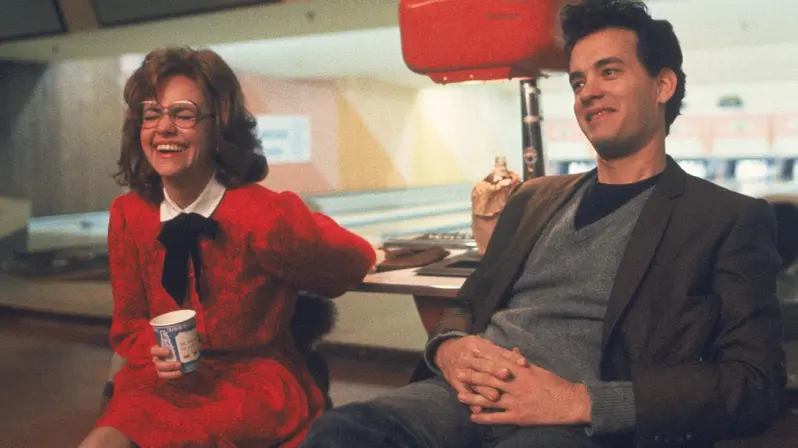The best medicine
Buried early in Tom Hanks’s filmography is a fascinating little drama about the bruised souls of stand-up comedians, arriving a full twenty years before Judd Apatow would probe the exact same topic in his opus Funny People. The subject of the sad clown is a perpetually compelling one; perhaps it’s the inherent irony of it all, but it’s more likely that there’s a deep, resonant truth in the idea that the people most determined to make others laugh are the ones who most need to themselves. David Seltzer’s 1988 film, Punchline, dives headfirst into this psychological minefield, and while it’s a messy and tonally confused journey, it’s held together by a pair of outstanding lead performances that hint at the dramatic heavyweights both were destined to become.
The film ushers us into the scuzzy, ambitious world of New York’s comedy clubs, specifically a joint called The Gas Station that serves as a proving ground for a stable of comedians building their chops and reputation. Among them is Steven Gold (Tom Hanks), a med school dropout whose with an energetic, almost manic, stand-up act. He’s on the verge of getting noticed. Also vying for stage time is Lilah Krytsick (Sally Field), a housewife from New Jersey who, after years of being suppressed home, is finally chasing her long-deferred dream of earning laughs on stage. The two strike up a tentative friendship, a bond forged in their shared, overlapping existential longing for something more than their current lives offer.
What makes Punchline a worthwhile watch, even when it meanders and mumbles, is the terrific work from its two leads. This was a pivotal year for Hanks. He had just become America’s sweetheart in Big, but here, he completely sheds that affable persona to give us something far more neurotic. It’s like one last blast of early Hanks’ unfiltered comic mania, but with a bit more sharpness than his broad work in stuff like The Money Pit and Bachelor Party. It’s a performance that straddles the line between razor wit and unfiltered psychological collapse, making some of his scenes tough to watch but always fascinating.

Field is equally brilliant, perfectly capturing the quiet desperation of a woman hemmed in by domesticity without ever letting the role become dour. Lilah isn’t just looking for laughs; she’s looking for a version of herself that isn’t defined by her husband or her children. The film’s best scene shows Field scrambling to get her house ready for guests, her entire tedious home life spelled out in a frantic, hurried sequence. The film also gets a welcome dose of humanity from John Goodman as Lilah’s husband, who is baffled by his wife’s new hobby but fundamentally decent and supportive.
Not every plot point lands, and the comedy itself is underwhelming, undercutting the film’s attempts to take the craft seriously. (It also begs the eternal question: has there ever been a movie that successfully makes stand-up comedy seem genuinely funny?) But even when the story falters, the characters remain charming and believable, and wonderfully developed across the story. For all its messiness, Punchline is a powerful reminder of just how dynamic young Hanks was, and it stands as a fascinating, flawed, but deeply felt exploration of the pain that so often fuels the laughter.
- Review Series: Tom Hanks
Is It Good?
Good (5/8)
Dan is the founder and head critic of The Goods. Follow Dan on Letterboxd. Join the Discord for updates and discussion.

